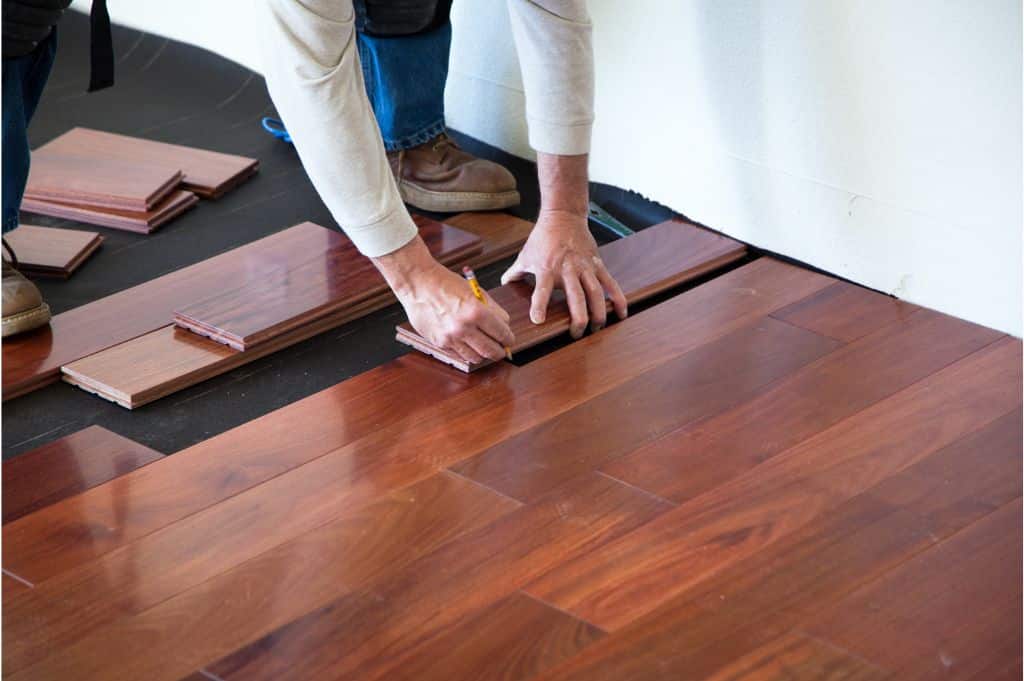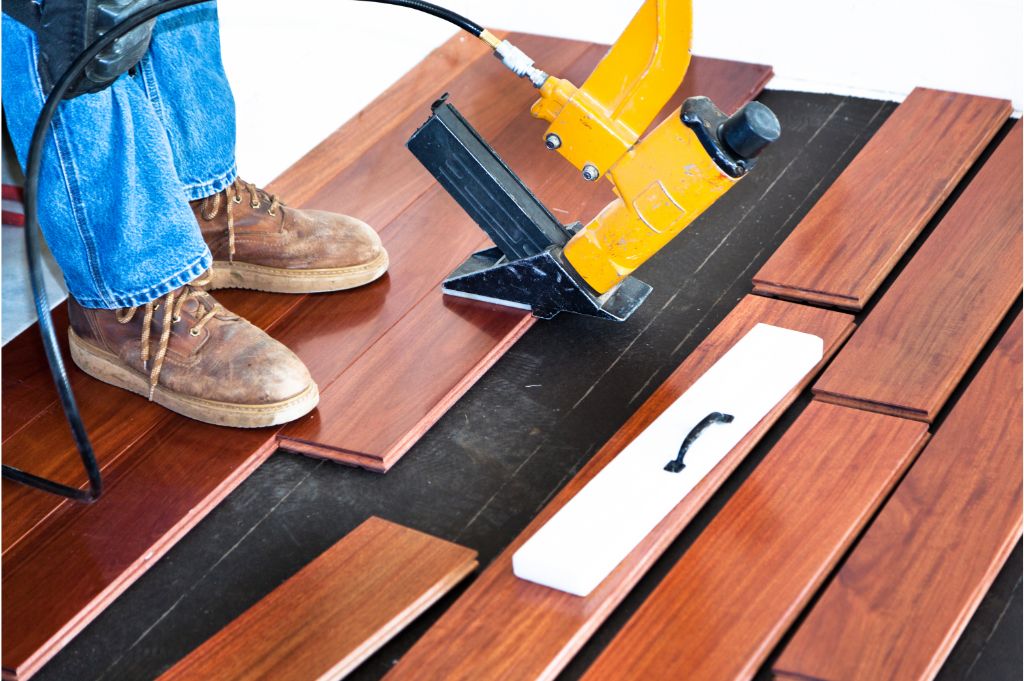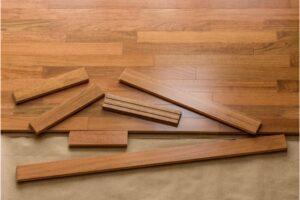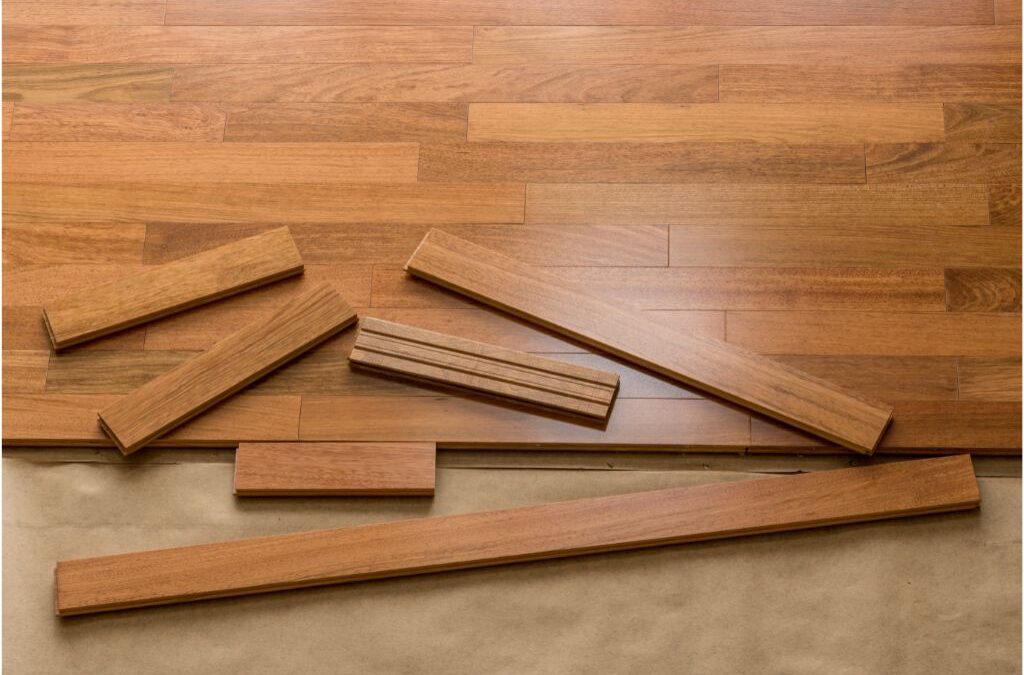When it comes to enhancing the beauty and value of your home, hardwood flooring installation offers a timeless solution that exudes elegance and durability. Whether you’re renovating your space or building a new home, understanding the intricacies of hardwood floor installation is essential for achieving the perfect look. In this comprehensive guide, we’ll explore everything you need to know about hardwood floor installation, from types of wood to cost considerations and beyond.
Types of Hardwood Flooring
Solid Hardwood
One of the most sought-after options for hardwood flooring installation is solid hardwood. Crafted from a single piece of wood, solid hardwood boasts unparalleled authenticity and durability. With a wide range of species available, including oak, maple, and cherry, homeowners can customize their flooring to suit their aesthetic preferences.
Engineered Hardwood
For areas prone to moisture and humidity fluctuations, engineered hardwood is an excellent choice for hardwood flooring installation. Comprising multiple layers of wood bonded together, engineered hardwood offers enhanced stability and resistance to environmental factors, making it suitable for basements, kitchens, and other high-moisture spaces.
Laminate Flooring
While not genuine hardwood, laminate flooring provides an affordable alternative for hardwood flooring installation. Featuring a high-density fiberboard core with a photographic layer that mimics wood grain, laminate flooring offers the look of hardwood at a fraction of the cost, making it a popular choice for budget-conscious homeowners.

Hardwood Flooring Installation – Nadine Floor Company
Factors Influencing Flooring Cost
Type of Wood
The type of wood selected for hardwood flooring installation significantly impacts the overall cost. Exotic hardwoods tend to be more expensive than domestic varieties, with prices varying based on availability and rarity. Homeowners should carefully consider their budget and aesthetic preferences when choosing a wood species.
Installation Method
The method of hardwood flooring installation—whether glued, nailed, or snapped together—affects both the labor cost and the longevity of the flooring. While some homeowners may opt for DIY installation to save money, complex techniques may require professional assistance to ensure a seamless finish and optimal performance.
Room Layout
The layout of the room plays a crucial role in determining hardwood floor installation costs. Simple, square-shaped rooms are typically easier and less time-consuming to install, resulting in lower labor charges. However, complex layouts or irregular designs may incur additional expenses due to increased installation time and complexity.

Hardwood Flooring Installation – Nadine Floor Company
DIY vs. Professional Installation
While some homeowners may be tempted to tackle hardwood flooring installation as a DIY project, it’s essential to weigh the pros and cons carefully. While a DIY approach may seem cost-effective initially, mistakes or improper installation can lead to costly repairs down the line. Hiring a professional installer ensures a flawless finish and maximizes the longevity of the flooring.
Matching Flooring to Home Decor
Selecting the right hardwood flooring to complement your home’s interior is crucial for achieving a cohesive aesthetic. Whether you prefer the warm tones of oak or the rich hues of cherry, professional designers can offer valuable guidance to ensure your hardwood flooring installation harmonizes with your decor scheme, creating a stunning backdrop for your living space.
Conclusion: Hardwood Flooring Installation

Hardwood Flooring Installation – Nadine Floor Company
Investing in hardwood flooring installation is a significant decision that requires careful consideration of various factors, including wood type, installation method, and overall cost. By understanding these key aspects and seeking professional guidance when needed, homeowners can achieve stunning results that enhance the beauty and value of their homes for years to come.
FAQs (Frequently Asked Questions)
1. How long does hardwood flooring installation typically take?
The duration of hardwood flooring installation varies depending on factors such as room size, layout complexity, and chosen wood type. On average, installation can take anywhere from a few days to several weeks, ensuring meticulous attention to detail for a flawless finish.
2. Is engineered hardwood suitable for hardwood flooring installation in high-moisture areas?
Yes, engineered hardwood is specifically engineered to withstand moisture and humidity, making it an ideal choice for hardwood flooring installation in areas prone to environmental fluctuations, such as basements, kitchens, and bathrooms.
3. Can I install hardwood flooring over existing flooring?
In some cases, hardwood flooring installation can be performed over existing flooring, provided the surface is clean, level, and structurally sound. However, it’s essential to consult with a professional installer to assess feasibility and ensure proper preparation for a seamless finish.
4. What maintenance is required for hardwood flooring after installation?
Regular maintenance, including sweeping, vacuuming, and occasional refinishing, helps preserve the beauty and longevity of hardwood flooring. Additionally, avoiding excessive moisture exposure and using furniture pads to prevent scratches can extend the lifespan of your flooring investment.
5. How can I estimate the cost of hardwood flooring installation for my home?
To estimate the cost of hardwood flooring installation, consider factors such as room size, wood type, installation method, and any additional services required. Consulting with multiple contractors and obtaining detailed quotes can provide a clearer understanding of the overall expense, ensuring transparency and budget adherence.
For expert hardwood flooring installation services tailored to your home’s needs, contact Nadine Floor Company today at (469) 666-4530. Let us transform your space with quality craftsmanship and exceptional customer service. Upgrade your home in Plano,TX with beautiful hardwood floors that stand the test of time. Schedule your consultation now!

